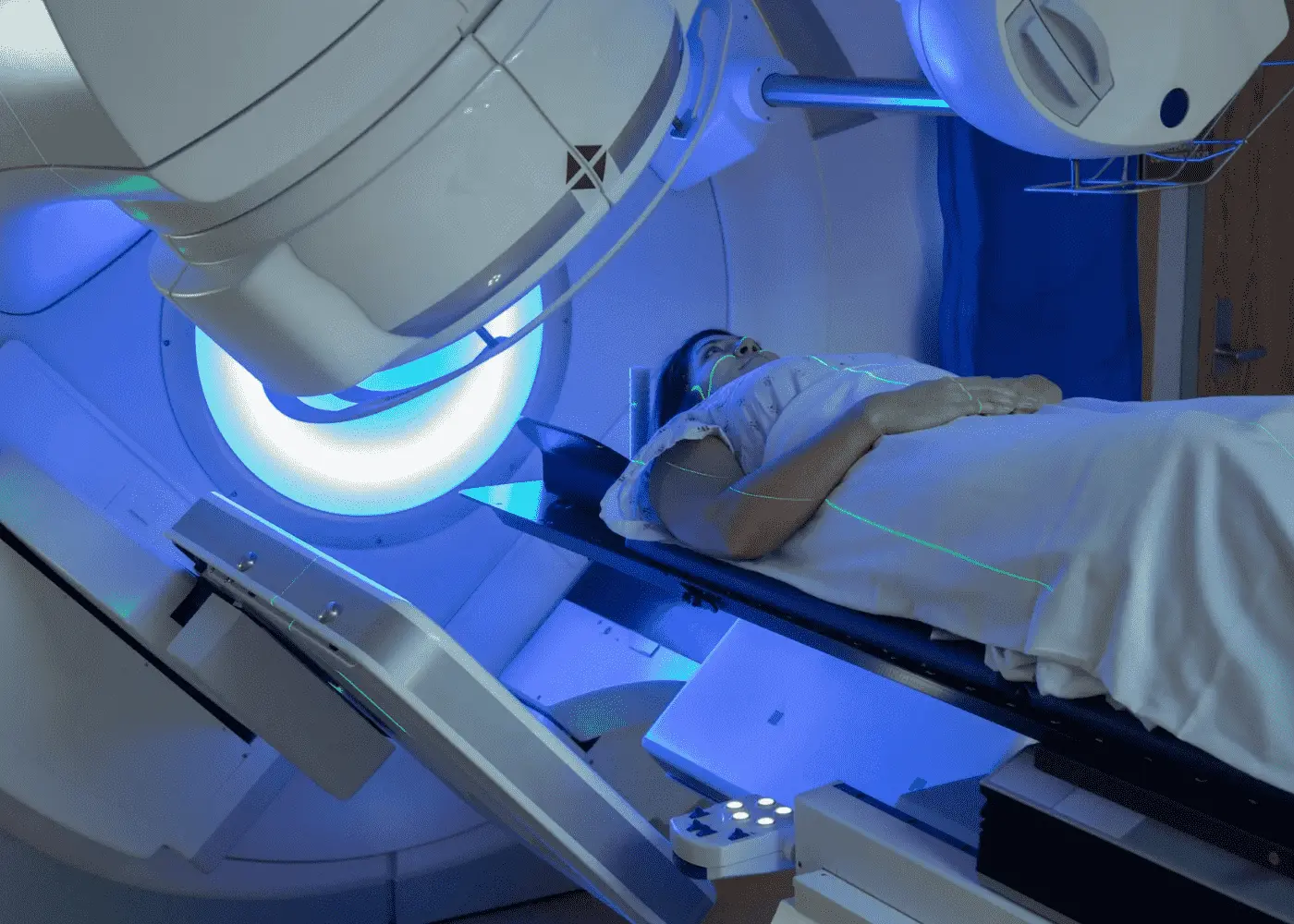
Radiation Oncology: The Lifesaving Science of Targeting Cancer
Let's dive into the world of radiation oncology. It's a field that's constantly evolving, blending cutting-edge science with compassionate patient care. The Radiation Oncology Department at GS Cancer Research Institute has an experienced team of Onco Specialist who take the utmost care and patient centric approach for the treatment.
What is Radiation Oncology?
Radiation oncology is a medical specialty that focuses on using Ionizing radiation to treat cancer. It involves a team of experts who plan and deliver high doses of radiation precisely to cancer cells, aiming to destroy or shrink tumors while sparing surrounding healthy tissue. It's a delicate balance of science and art, requiring skill, precision, and a deep understanding of cancer biology. art, requiring skill, precision, and a deep understanding of cancer biology.
How Radiation Therapy Works
Radiation therapy harnesses the power of high-energy particles or waves, like X-rays, gamma rays, or protons, to damage the DNA of cancer cells, preventing them from growing and dividing. When these cells try to divide and multiply, the damaged DNA prevents them from doing so, leading to cell death. It's a powerful tool because it targets the cancer cells' ability to reproduce, which is essential for tumor growth. Let's break down the different types of radiation therapy.
External Beam Radiation Therapy (EBRT)
EBRT is one of the most common radiation therapy. It uses a machine called a linear accelerator to direct high-energy beams at the tumor from outside the body. This is a very precise way, which allows doctors to target the tumor in a way that minimize damage to surrounding healthy tissue.
Internal Radiation Therapy (Brachytherapy)
Brachytherapy is a process of placing radioactive material inside or very near to the tumor. This method delivers a high dose of radiation to the cancer cells with minimal exposure to surrounding healthy tissues. It's often used for cancers of the cervix, prostate, and breast.
The Radiation Oncology Team
Treating cancer with radiation isn't a one-person job. We at, GS Cancer Research Institute has a dedicated team of specialists, each playing a crucial role in the patient's care. Let's meet the key players.
Radiation Oncologists
These are the doctors who specialize in treating cancer with radiation. They develop the treatment plan, determine the appropriate radiation dose, and oversee the patient's care throughout the treatment process.
Medical Physicists
Medical physicists ensure that the radiation equipment is working correctly and safely. They also help design and optimize treatment plans to deliver the precise dose of radiation to the tumor.
Radiation Therapists
Radiation therapists operate the machines that deliver the radiation treatments. They work closely with patients, guiding them through each session and ensuring that everything goes smoothly.
Technological Advances in Radiation Oncology
The field of radiation oncology is constantly evolving, with new technologies making treatments more effective and safer. Let’s explore some of the latest advanced techniques used at GS Cancer Research Institute.
Rapid ARC IGRT
IGRT uses imaging technologies to guide the delivery of radiation therapy. By taking images before and during treatment, doctors can adjust the patient's position and the radiation beams in real-time, increasing accuracy and effectiveness.
Stereotactic Radiosurgery (SRS) and Stereotactic Body Radiotherapy (SBRT)
SRS and SBRT are advanced techniques that deliver very high doses of radiation to small, well-defined tumors. These methods are incredibly precise, often requiring fewer treatment sessions and reducing side effects.
Patient Experience and Care
Undergoing radiation therapy can be a daunting experience. We, at GS Cancer Research Institute are committed to provide the best patient care and overall experience. Let's take you through the patient journey at GS Cancer.
Initial Consultation and Assessment
Before treatment begins, the radiation oncology team conducts a thorough planning process. This involves imaging tests like CT scans or MRIs to map the tumor's exact location. Using this information, they create a detailed treatment plan and perform a simulation to ensure everything is set up perfectly.
Treatment Planning and Simulation
The journey begins with a consultation where the radiation oncologist reviews the patient's medical history and conducts a thorough examination. This is followed by discussions about the treatment plan, potential side effects, and what to expect during therapy.
Managing Side Effects
Side effects of radiation therapy can vary depending on the treatment area and dose. Common side effects include fatigue, skin changes, and localized pain. Our care team provides strategies and medications to help manage these effects, ensuring patients maintain the best possible quality of life during treatment.
Radiation Safety and Precautions
Safety is a top priority in radiation oncology. Strict protocols are in place to protect both patients and healthcare workers from unnecessary radiation exposure at GS Cancer Research Institute. Regular equipment checks, precise calculations, and protective measures ensure that radiation therapy is administered safely and effectively.